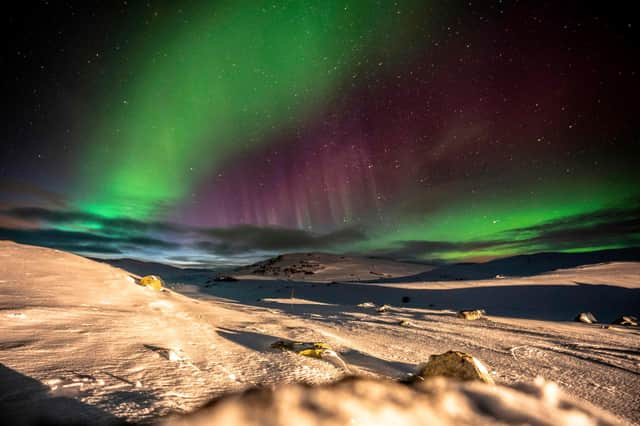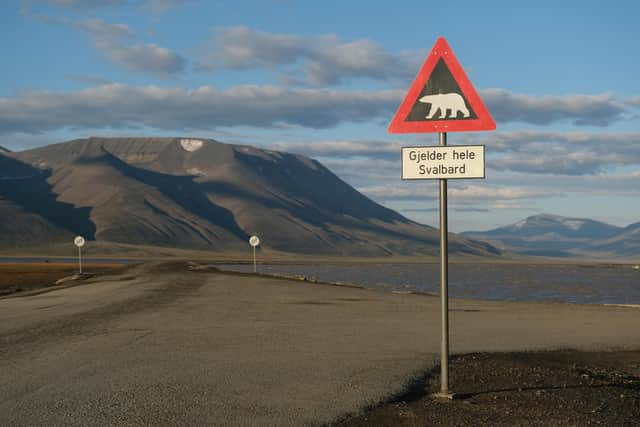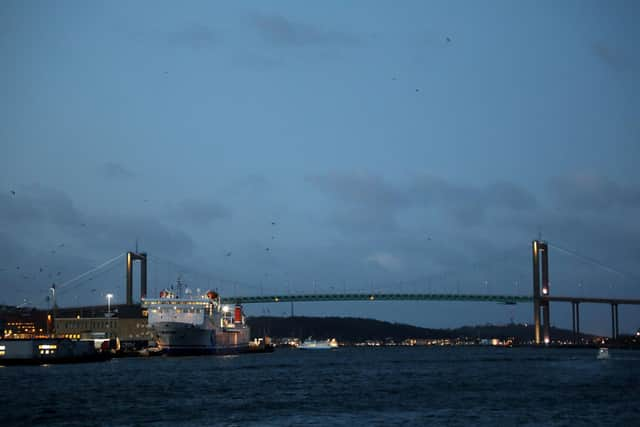Scotland, the world's most northerly non-Arctic nation, must intensify its relations with the region – Michael Russell


But Scotland is actually the world’s northernmost non-Arctic nation. Shetland is closer to the Arctic circle than it is to London, only 400 miles south of the Arctic and at a higher latitude than Juneau, in Alaska. The links between Scotland and the Arctic date back centuries: these are ancient relationships, which are now being refreshed and reinvigorated for our times.
What drives the current increase in Scottish-Arctic cooperation is not just geographical proximity, however.
Advertisement
Hide AdAdvertisement
Hide AdIncreased collaboration with our Arctic neighbours makes sense because we share similar challenges and similar ambitions. These include the need to reverse rural depopulation, improve connectivity in remote areas, promote a path of sustainable economic growth and tackle biodiversity loss.
Longstanding cultural links
By exchanging know-how with countries that face similar issues and pooling our expertise, we can develop solutions that strengthen the resilience and well-being of our communities. Scotland has a wealth of relevant expertise but there also remains a lot that we can learn from others – and we are eager to learn.
We also have longstanding cultural ties, which can be celebrated and deepened to enrich us all. And we can work together to find modern-day solutions to protecting our centuries-old indigenous languages.


There is also an economic case to be made for closer ties. Arctic countries are important trade partners with Scotland, representing 28 per cent of our total exports. And there is another urgent challenge: the Covid-19 pandemic is having deep and complex impacts across the world’s economies and societies.
Indeed, the pandemic has underlined just how important multilateral dialogue and the international exchange of knowledge is, not only in responding to the crisis, but in building back from its impact in a fairer and greener way. So by working with countries with similar features and outlooks, we can better inform both our current response and post-Covid recovery.
Bridges, not barriers
The UK government’s damaging Brexit is breaking us away from our friends and neighbours in Europe against our will, putting up new barriers. In contrast, the Scottish government is committed to working with like-minded international partners and building not barriers but bridges for friendly cooperation, enthusiastic engagement, and fruitful exchange of knowledge.


In this spirit, the Scottish government has promoted the Arctic Connections series of digital seminars, which explore these bonds and shared challenges, promoting discussions between Scottish and international speakers.
I am delighted to be taking part in one of these events today to discuss Scotland’s increasing engagement with the Arctic nations, both in Europe and North America. I will be joined by Anu Fredrikson, director of Arctic Frontiers, and Marie-Anne Coninsx, the former and indeed first EU Ambassador to the Arctic. The discussion has been organised with the Washington DC-based Wilson Centre’s Polar Institute, one of the most influential Arctic think-tanks in the United States.
Advertisement
Hide AdAdvertisement
Hide AdOther Scottish ministers have taken part in seminars concerning issues such as mental well-being in remote areas and rural repopulation. A forthcoming webinar, organised in partnership with the Danish Embassy, will focus on digital solutions in rural health and the minister for rural affairs, Mairi Gougeon, will share Scotland’s expertise in community climate action in an event organised with the Royal Canadian Geographical Society, which will involve Canadian experts including Lisa Koperqualuk, Vice-President of the Inuit Circumpolar Council.
These webinars address the themes included in the Scottish government’s Arctic policy framework. Published in September 2019, it sets out “Scotland’s offer to the Arctic,” and is a prospectus for cooperation and knowledge exchange.
Dramatic illustration of climate change
Earlier this month, the Scottish government also submitted a response to a public consultation on the European Union’s new Arctic Policy.
Scotland’s membership of the EU has greatly benefited our ties with the Arctic region. It has provided crucial support for transnational collaboration, now threatened by the UK’s exit from the EU.
Not only do we want to continue to exchange information, but we are committed to contributing to shared policy goals, especially after Brexit.
For example, in spite of Brexit affecting our ability to participate in European programmes, we will continue to offer our expertise and seek access to platforms that allow us to contribute to EU efforts at tackling climate change and promoting environmental sustainability.
After all, the Arctic region and its melting glaciers stand as a dramatic illustration of the devastating impact of climate change on our planet.
With the Arctic warming twice as fast as the rest of the planet, we have urged that the new EU Arctic policy should prioritise green solutions to climate change.
Advertisement
Hide AdAdvertisement
Hide AdThat is also why we are committed to working with European partners, contributing to a deeper understanding of the rapid changes that are occurring in the Arctic.
For example, Marine Scotland Science and the Scottish Association for Marine Science are participating in the EU-funded Blue-Action project, which investigates the effects of Arctic warming on weather and climate in the Northern Hemisphere.
Make no mistake, Scotland will remain an outward-facing and constructive partner on the European stage.
As we work towards the full realisation of Scotland’s place in the world as an independent country, it is ever more important that we talk to, work with and learn from other countries in the Arctic region, in Europe, and beyond, in the spirit of co-operation, engagement and lasting friendship.
For more information, please see www.gov.scot/arctic
Michael Russell is MSP for Argyll and Bute, and Cabinet Secretary for the Constitution, Europe and External Affairs
A message from the Editor:
Thank you for reading this article. We're more reliant on your support than ever as the shift in consumer habits brought about by coronavirus impacts our advertisers.
If you haven't already, please consider supporting our trusted, fact-checked journalism by taking out a digital subscription.
Comments
Want to join the conversation? Please or to comment on this article.